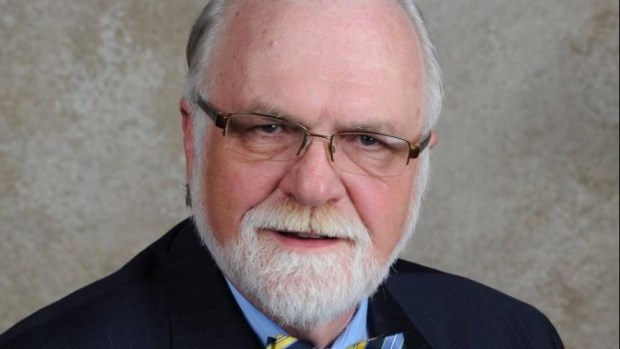The Supreme Court of Canada has rejected former Chilliwack school trustee Barry Neufeld's defamation case in which he claimed a teachers' union leader calling his views bigoted, transphobic and hateful was defamatory.
The court said in its May 19 decision that the charter right to freedom of thought and expression includes the right to expression motivated by a desire to promote tolerance and respect for a marginalized group. That includes counter-comments made in response to those by others, the court said.
The union, the BC Teachers’ Federation (BCTF), said the ruling affirms the public interest of counter-speech, which involves countering ignorant or harmful statements.
“The court recognized that while counter-speech is not necessarily a complete solution to harmful expression, it plays an important role in a healthy society and is aligned with charter values,” the union said in a statement.
Neufeld was not immediately available for comment.
Starting in 2017, Neufeld made online posts criticizing a B.C. government initiative to equip educators to instruct students about sexual orientation and gender identity (SOGI 123).
In an Oct. 23, 2017 Facebook post, he called SOGI 123 a “weapon of propaganda” that teaches the “biologically absurd theory” that “gender is not biologically determined, but is a social construct.” He also said allowing children to "choose to change gender is nothing short of child abuse."
The court decision said many found Neufeld’s comments derogatory of transgender and other 2SLGBTQ+ individuals. One of those people was Glen Hansman, a gay man, teacher, and former president of the BC Teachers’ Federation.
“I hope this decision makes things easier for anyone speaking in defence of a marginalized community, particularly those speaking in defense of 2SLGBTQ+ youth and trans people generally, without having to be fearful of retaliatory legal action,” Hansman said.
The teacher accused Neufeld of undermining safety and inclusivity for 2SLGBTQ+ students in schools. He questioned whether Neufeld was suitable to hold elected office.
The court said Hansman’s expression was motivated by a desire to promote tolerance and respect for a marginalized group in society.
“(Hansman) spoke out to counter expression he perceived to be untrue, prejudicial towards transgender and other 2SLGBTQ+ individuals, and potentially damaging to transgender youth. The transgender community is undeniably a marginalized group in Canadian society. The history of transgender individuals in Canada has been marked by discrimination and disadvantage,” the court said. “Transgender and other gender non‑conforming individuals were largely viewed with suspicion and prejudice until the latter half of the 20th century, and have been stereotyped as diseased or confused simply because they identify as transgender.”
Still, Neufeld sued Hansman for defamation but the union leader applied to have the case dismissed as a strategic lawsuit against public participation or SLAPP suit under B.C.’s Protection of Public Participation Act (PPPA).
The high court said a SLAPP is a tactical action seeking to suppress expression on matters of public interest.
“The goal of a SLAPP is not necessarily a legal victory, but a political one: to intimidate and suppress criticism with the threat of costly litigation,” the court said. “A key feature of a SLAPP is thus the strategic use of the legal system to silence contrary viewpoints.”
The union said the court’s decision is its first to consider British Columbia’s anti-SLAPP legislation.
In B.C.’s courts
B.C. Supreme Court Justice Alan Ross in 2019 allowed Hansman’s PPPA application and dismissed Neufeld’s case. The judge said Hansman had a valid fair comment defence and that the value in protecting his expression outweighed the resulting harm done to Neufeld.
B.C.’s Court of Appeal disagreed on both counts and reinstated Neufeld’s action.
In the new, six-to-one decision, the Supreme Court of Canada rejected the appeal court decision and upheld the B.C. Supreme Court ruling.
The court said Neufeld’s right to criticize a government initiative was not in dispute. Rather, it said, the central issue was whether Hansman had a right to respond to Neufeld in the way he chose without the threat of civil liability.
“In my view, he did,” Justice Andromache Karakatsanis said.
She said the B.C. Supreme Court judge was entitled to dismiss the defamation claim because the public interest in protecting Hansman’s expression was not outweighed by the limited harm to Neufeld.
She said Hansman’s words were neither a disproportionate nor gratuitous response to Neufeld’s statements.
“There is a substantial public interest in protecting his counter-speech,” Karakatsanis wrote. “Not only does protecting Mr. Hansman’s expression preserve free debate on matters of public interest, it also promotes equality, another fundamental democratic value.”
Current BCTF president Clint Johnston called the ruling “a clear win for anyone who has faced legal action that aims to intimidate or silence legitimate public criticism.
“It is also an affirmation of the importance of standing up for vulnerable communities and marginalized individuals. I want everyone in British Columbia’s education community, particularly LGBTQ2S+ teachers, students, and families, to know that the BCTF will always stand up for your safety and inclusion in our schools,” Johnston said.


